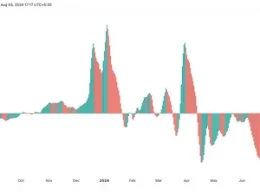Financial inclusion is a growing issue in many parts of the world. In countries such as Indonesia, large portions of the population still lack access to banking services and other financial activities, leaving them underserved and unable to participate in economic activities. Fortunately, recent technological advances have started to change this landscape. Innovative products and services are enabling more people to join the digital economy, making financial inclusion possible for many that have been left behind by traditional banks. In this article, we’ll explore how innovation is driving accessibility for Indonesia’s unbanked population and discuss how this could help unlock financial inclusion for all.
What is Financial Inclusion?
Financial inclusion is the provision of financial services to low- and moderate-income households. In Indonesia, financial inclusion has been a priority for the government since 2008, when the National Financial Inclusion Strategy was launched. The strategy has three pillars: access to financial services, quality of financial services, and consumer protection.
Access to financial services is essential for households to manage their finances, save for future needs, and smooth consumption. However, nearly 60 percent of Indonesian adults do not have a formal bank account. To increase access to financial services, the government has launched several initiatives, including the establishment of postal savings banks and microfinance institutions. It has also expanded outreach efforts by partnering with community groups and private companies.
Quality of financial services is crucial for ensuring that households can make effective use of financial products and services. To improve the quality of financial services, the government has mandated that all banking institutions offer basic banking products and services, such as savings accounts and loans. It has also created incentives for banks to serve rural areas and low-income households.
Consumer protection is essential for ensuring that households can safely use financial products and services without fear of exploitation or abuse. The government has put in place a number of measures to protect consumers, including regulations on fees and interest rates charged by banks, as well as a complaint mechanism for addressing grievances.
The Importance of Financial Inclusion
In a country where over 80% of the population is unbanked, financial inclusion is crucial for ensuring that everyone has access to the services they need. Fortunately, innovation is helping to drive accessibility for Indonesia’s unbanked population.
One example of this is Kudo, a mobile-based platform that allows users to access banking services without having to visit a bank branch. Kudo offers a range of services including money transfers, bill payments, and even microloans. This platform is helping to bring banking services to those who would otherwise be excluded from the formal financial system.
Another example is LinkAja, a QR code-based payment system that can be used by anyone with a smartphone. This system is particularly useful in rural areas, where traditional banking infrastructure is often lacking. LinkAja allows users to make payments and transfers without needing a bank account.
These are just two examples of the many initiatives that are helping to drive financial inclusion in Indonesia. By making banking services more accessible, these initiatives are helping to empower individuals and communities across the country
The barriers to financial inclusion in Indonesia
In Indonesia, there are a number of barriers to financial inclusion. These include:
- Lack of access to formal financial institutions: There are approximately 17,000 banking outlets in Indonesia, which is still insufficient to meet the needs of the country’s population. In addition, many Indonesian households are located in rural areas, where access to formal financial institutions is limited.
- Limited financial literacy: A lack of financial literacy is another barrier to financial inclusion in Indonesia. In a survey conducted by the Financial Services Authority (OJK), only 19% of respondents were found to have sufficient financial knowledge. This low level of financial literacy makes it difficult for households to make informed decisions about saving, borrowing and managing their finances.
- High costs: The cost of accessing formal financial services can be high, particularly for low-income households. For example, bank account fees and minimum balance requirements can make it unaffordable for some households to maintain a bank account. In addition, the interest rates charged on loans from formal financial institutions are often high, which deters many people from borrowing.
- Lack of trust: There is a lack of trust in formal financial institutions among many Indonesians. This is due to a number of factors, including previous experiences with corrupt banks and negative media coverage of the banking sector. As a result, many people are reluctant to use formal financial services even if they are available to them
How innovation is driving accessibility for Indonesia’s unbanked population
Innovation is driving accessibility for Indonesia’s unbanked population in a number of ways. First, mobile technology is providing new opportunities for financial inclusion. In particular, the widespread use of smartphones is enabling more people to access banking services through apps and other digital platforms. This is particularly important in a country like Indonesia where many people live in rural areas and do not have easy access to traditional banking infrastructure.
Second, new payment systems are making it easier for people to send and receive money without having to go through a bank. For example, the rise of mobile money platforms such as GO-PAY and OVO has made it much easier for people to make payments without needing a bank account. This is crucial in a country where many people are unbanked or underbanked.
Third, new lending platforms are providing access to credit for those who would not otherwise have it. For example, Kredivo is a lending platform that provides instant loans to users with no credit history. This is helping to expand access to credit for Indonesian consumers who would otherwise be excluded from the formal financial system.
Fourth, new insurance products are becoming available that are more accessible and affordable for low-income Indonesians. For example, Prudential Life Insurance has introduced a microinsurance product that is specifically designed for low-income earners. This is helping to make insurance more accessible and affordable for those who need it most.
Finally, financial education initiatives are helping to empower Indonesians
Case study: BTPN Syariah’s Agent Banking Network
BTPN Syariah, one of Indonesia’s leading Islamic banks, has been at the forefront of financial inclusion by expanding its agent banking network. Agent banking refers to a system where financial institutions partner with local businesses or individuals to provide basic banking services in underserved communities. BTPN Syariah’s agent banking network currently consists of over 4,000 agents across Indonesia, and the bank plans to increase this number to 10,000 by 2019.
BTPN Syariah’s agent banking network has contributed to increasing access to financial services for Indonesia’s unbanked population. According to the World Bank, only 35% of Indonesian adults have a formal bank account. However, thanks to agent banking networks like BTPN Syariah’s, this number is slowly but surely increasing. In fact, between 2014 and 2017, the number of Indonesians with a formal bank account increased from 31% to 35%.
BTPN Syariah’s agent banking network has also helped the bank reach new customers in previously underserved markets. For example, 70% of the bank’s agent-banking customers are women, and 60% are located in rural areas. This is significant because women and rural residents are typically two groups that have difficulty accessing formal financial services.
Thanks to its innovative agent banking network, BTPN Syariah is helping to increase access to financial services for Indonesia’s unbanked population and expand its customer base into new markets.
Conclusion
Financial inclusion is an incredibly important topic, particularly in developing countries. Unlocking financial inclusion are key to creating a more prosperous and equitable society. In Indonesia, innovation has been driving the shift from physical banking to digital banking services as well as providing access to credit and insurance for those previously unbanked. These initiatives have had a huge impact on Indonesia’s economy and are continuing to make positive strides towards greater financial equality for all citizens.












